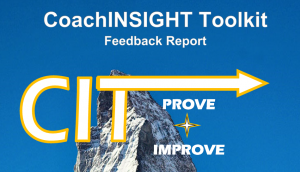Coaches can learn several valuable lessons from the hospitality industry, particularly from luxury brands like The Ritz-Carlton, about the importance of emotional intelligence training. Below are my top 8 valuable lessons emotional intelligence coaches can learn from the hospitality industry:
1). Emphasis on personalized service: The Ritz-Carlton strongly emphasizes creating emotional connections with guests. It trains its staff to anticipate and fulfill individual guest needs, a skill that coaches can apply to their client relationships.
2). Extensive training programs: The Ritz-Carlton invests heavily in employee training, with new staff members receiving over 250 hours of training in their first year. This underscores the importance of continuous learning and development, which coaches can adopt in their practices.
3). Cultural immersion: The Ritz-Carlton ensures that all employees, from front-line staff to leadership, are deeply immersed in the company’s culture and values. This approach helps create a consistent, high-quality experience for guests. Coaches can learn from this by developing a solid personal brand and consistently embodying their core values in client interactions.
4). Empowerment and decision-making: Ritz-Carlton employees are trained to make decisions and take ownership of guest experiences. This empowerment leads to more authentic and responsive service. Coaches can apply this principle by encouraging clients to take ownership of their growth and make decisions aligned with their goals.
5). Emotional and psychological aspects of service: The Ritz-Carlton educates its staff on the service’s emotional and psychological elements, recognizing that emotional engagement is crucial for customer retention. Coaches can benefit from incorporating emotional intelligence training to understand better and connect with their clients.
6). Structured knowledge transfer: The Ritz-Carlton has developed effective methods for transferring corporate knowledge and cultural identity to new employees and hotel openings. Coaches can learn from this approach to create structured onboarding processes for new clients or team members.
7). Customization and adaptability: While maintaining consistent standards, The Ritz-Carlton encourages each department to create its mission statement, allowing customization within the broader framework. Coaches can apply this principle by adapting their methods to suit individual clients while maintaining their overall coaching philosophy.
8). Continuous improvement: The hospitality industry, including luxury brands like The Ritz-Carlton, constantly evolves to meet customer expectations. Coaches can adopt this mindset of continuous improvement and innovation in their practices to stay relevant and practical.
By incorporating these lessons from the hospitality industry, coaches can enhance their emotional intelligence, improve client relationships, and deliver more impactful and personalized coaching experiences.



